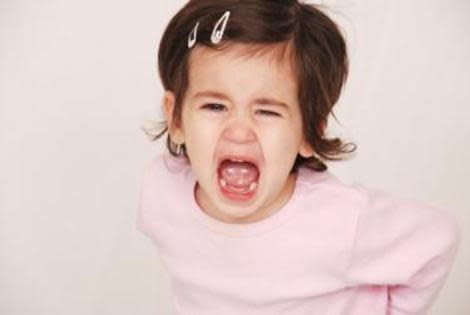One Dad Discusses: A Guide to Discipling Toddlers
By Josh Burrell for GalTime.com

Parenting inherently comes with a lot of responsibility. As parents, we literally hold the well-being of our children in our hands. We also play a pivotal role in shaping the behavior, attitudes, and, to a degree, the personalities of our children. One responsibility we have to take seriously is disciplining.
Even thinking about discipline can, at times, be a daunting task: Should I spank, use timeouts, raise my voice? Many considerations go into determining how, when, and why parents should discipline. No matter the method used, there are some universal truths that go along with the discipline of, well, discipline.
DISCIPLINE IS OUR RESPONSIBILITY
As parents, we cannot shirk our responsibility. We are the authorities over our children. Children don't make the rules; they don't even know the game they're playing! Therefore, it's up to us - their protectors and guides - to set the rules and make sure our children abide by them.
RELATED One Dad Discusses: Cracking the Potty-Training Code
DISCIPLINE SHOULD ALWAYS BE DONE WITH A PURPOSE
Do not, I repeat, do not discipline out of anger. The purpose of discipline is not to be an outlet for our rage. Not only is it a dangerous path to go down, it also sends the wrong message. To discipline out of anger teaches our children not to make us mad - and to fear others they may anger. It doesn't teach them to cease a behavior or an action; it simply teaches them to label an action as "bad" within a specific context. Every act of discipline should be committed to either stop an action or correct a behavior of some sort. Children only understand this when they're approached in a calm manner.
DISCIPLINE SHOULD HAVE CONSEQUENCES
This is the part that isn't fun. Discipline should be painful for your child. When we discipline, we're trying to create an outcome, whether that's to get our children to obey, listen, and be respectful, or to get them to not repeat an action that's inappropriate or dangerous. In order to discipline effectively and instigate real change, we must really discipline. This means consequences are in store for our children, whether that spells timeouts or restricted video game playing. It can be downright hard, but they have to not want to experience the consequences again in order for the consequences to be effective. (And the crying and pouting you'll endure will ensure you won't want to experience the consequences, either!)
RELATED 5 More Reasons Not to Spank Your Kids
DISCIPLINE SHOULD AFFECT LONG-TERM BEHAVIORS AND ACTIONS
Discipline should change behavior over the long term. If it doesn't, we need to look at how we're disciplining. Am I doing something that teaches my children not to hit - or just to not do it when I'm around? Am I rewarding a bad behavior with attention or other payoffs? Am I performing the exact same actions I'm asking my children to avoid? If it seems you're teaching your children only to change behavior when you're around, then you need to examine your disciplining strategy.
Disciplining children is never fun, but it's our duty as parents. We have a responsibility to equip our children to grow up to be well-behaved and, eventually, to become adults that will contribute to society. We all want our children to be courteous, respectful, and even well-liked. Discipline is the cornerstone to making that happen.
What discipline method works best for your toddler?
More from GalTime.com:
